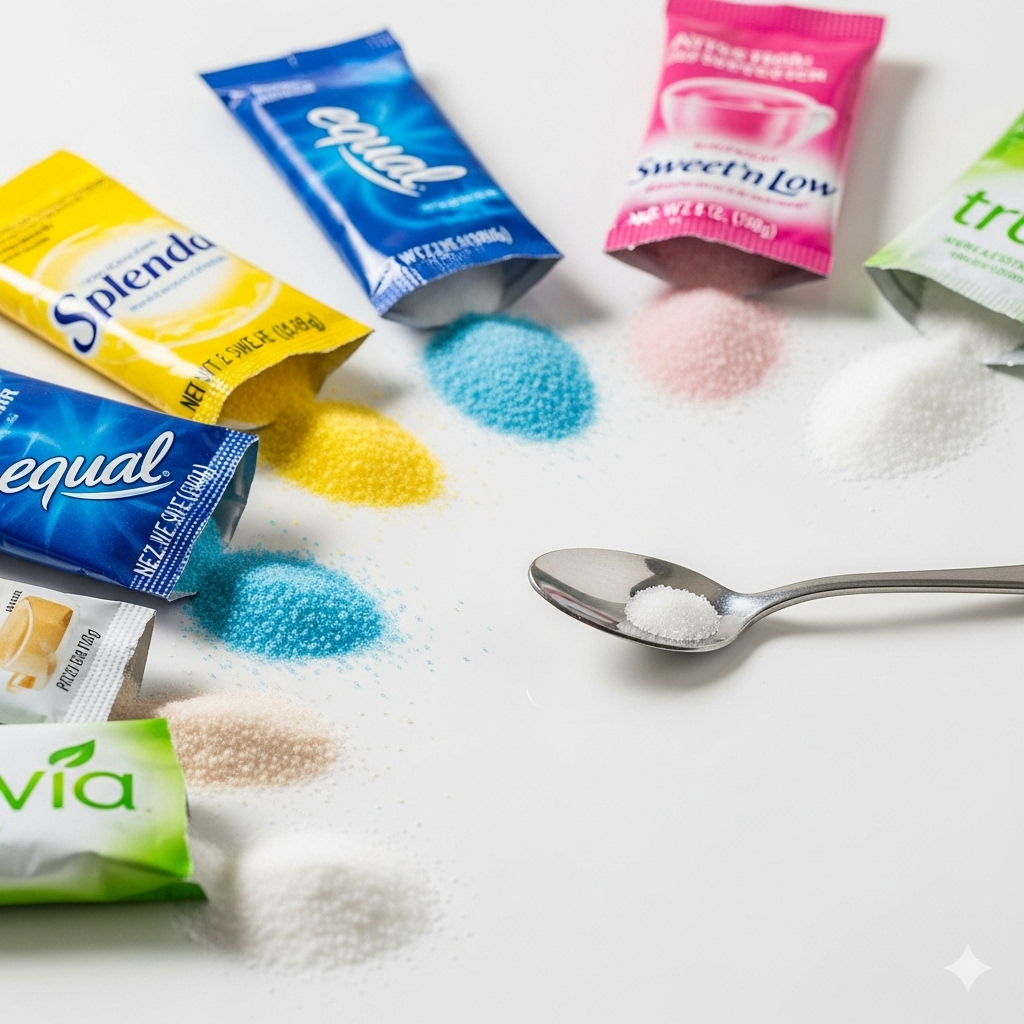Recent studies are challenging conventional wisdom about diet and lifestyle, suggesting that two seemingly simple factors—the consumption of artificial sweeteners and the timing of breakfast—may have a significant impact on our long-term health and longevity. These findings highlight a growing trend in health research: the focus on subtle, daily habits that can shape our well-being over time.
The Sweetener-Cognition Connection

For decades, artificial sweeteners have been marketed as a guilt-free alternative to sugar, a tool for weight management and a safe option for people with diabetes. However, a new study published in the journal Neurology raises serious concerns about their long-term effects on brain health.
Researchers tracked over 12,000 adults over an eight-year period, analyzing their dietary habits and performing regular cognitive tests. The results were startling: participants who consumed the highest amount of common artificial sweeteners, such as aspartame, saccharin, acesulfame-K, erythritol, and xylitol, experienced a 62% faster rate of cognitive decline compared to those who consumed the least. This decline was equivalent to an extra 1.6 years of brain aging over the study period.
A key finding was that the link was most pronounced in adults under the age of 60, especially those with diabetes. This suggests that exposure to these sweeteners during midlife, a critical period for setting the trajectory of brain health, may be particularly harmful. While the study established a strong correlation, it did not prove causation. However, the authors hypothesize that artificial sweeteners may trigger processes like neuroinflammation and neurodegeneration, or disrupt the gut-brain axis, potentially leading to long-term cognitive harm.
The takeaway from this research is not a call for a complete ban but a recommendation for caution. Experts suggest reducing intake of both added sugars and artificial sweeteners, opting for whole foods and natural sweeteners like honey or maple syrup in moderation.
Is Breakfast Still the Most Important Meal? Timing Is Everything.
The old saying that “breakfast is the most important meal of the day” is gaining new meaning thanks to a separate study on meal timing and longevity. Researchers at Mass General Brigham found that the time of day we eat, particularly our first meal, could be a simple yet powerful indicator of our overall health and even a predictor of our lifespan.
The 20-year study, which followed nearly 3,000 adults aged 42 to 94, revealed a clear association: older adults who consistently ate breakfast later in the day faced a higher risk of health problems and early death. In fact, for every hour a person delayed breakfast, their risk of dying during the study period increased by 11%.
While this research also highlights a correlation rather than a direct cause, the findings are significant. The shift to a later breakfast time may be a symptom of an underlying health issue, such as depression, fatigue, or oral health problems. The study’s lead author, Dr. Hassan Dashti, suggests that changes in mealtime routines could serve as an “easy-to-monitor marker” for clinicians and family members to identify potential health declines in older adults.
The research adds to the growing field of chrononutrition, which studies how the timing of meals influences our circadian rhythms and metabolic functions. A consistent, early breakfast may help align the body’s internal clock, which is crucial for maintaining optimal health as we age.
A Holistic View of Wellness
Taken together, these two studies paint a compelling picture of modern health. They underscore a shift away from focusing solely on what we eat and a greater emphasis on the subtle details of our lifestyle, including the timing of our meals and the hidden ingredients in our food. As we navigate the complex landscape of health and wellness, these findings reinforce a holistic approach, reminding us that every choice, from the sweeteners we choose to the time we start our day, can contribute to our long-term vitality.
Leave a Reply